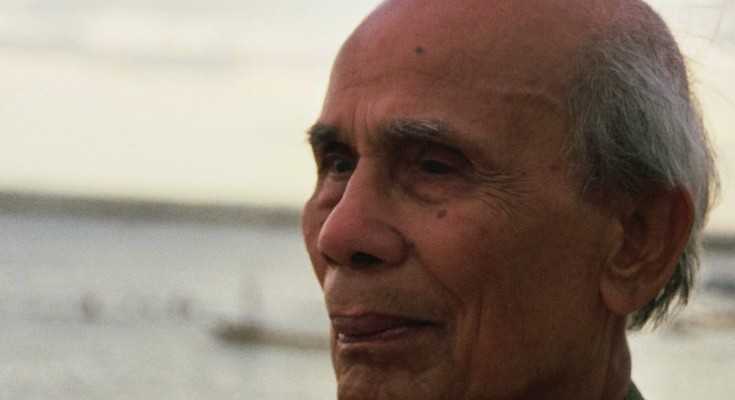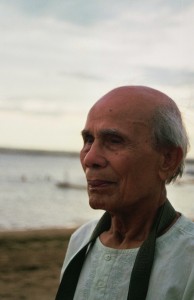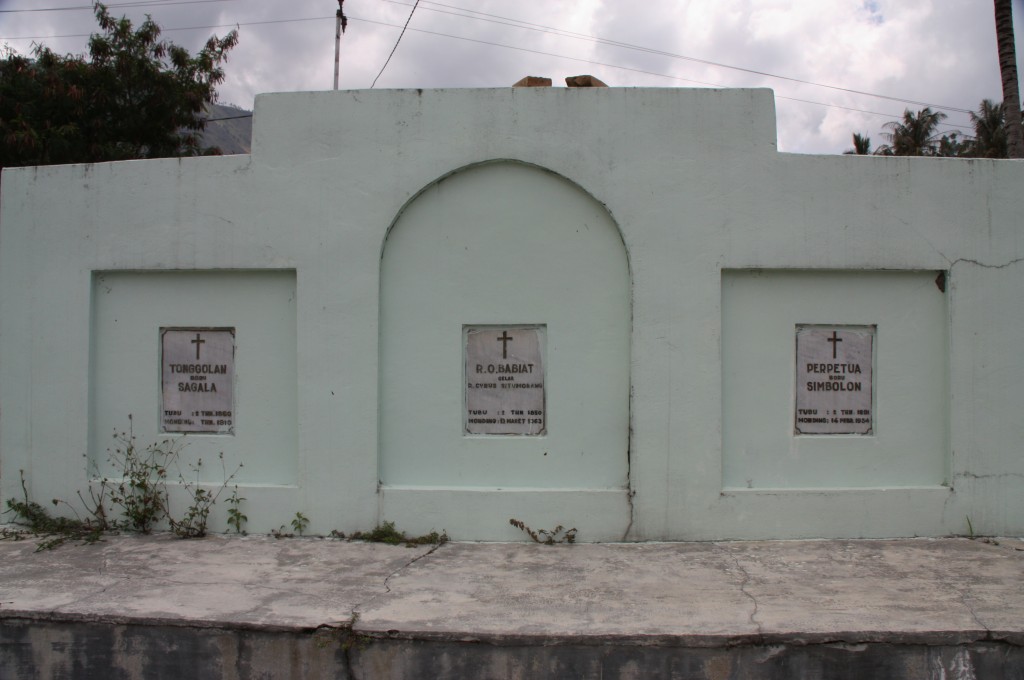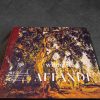Only one week after publishing this report by his friend Willem van Gent, Sitor passed away. As a tribute to the great poet and fighter for human rights, we re-publish it on our homepage.
After saying goodbye to our colleagues of the international press the two of us we stay for a few more days on the island of Samosir. We move from our big but quiet and comfortable hotel Toledo Inn to Liberta*. It is the popular homestay of pak Bulan (mr. Moon). A place with lots of trees and plants where it is cool most of the time and much laid back. And for surprisingly little money and yet quite.
On a motorbike we ride from Tuk Tuk to the village of Harianboho to visit the birthplace of the well-known Indonesian poet Sitor Situmorang (90). His poems have been translated in English, French and Dutch. As friends of Sitor and his Dutch wife we will bring their greetings to his family. Going north the views on the lake are spectacular and we are stunned by the enormous graves we see around. The number of potholes is relatively low and there is little traffic, so it’s an easy ride up to Pangururan, the main city on Samosir. We drive to the mainland via a narrow road connecting Samosir with the mainland. You can see Pusuk Buhit (1981 metres), the ‘navel mountain’ where the Batak people are said to originate from. The views on the lake as we go up on the mountain are impressive. At the high crossroad to Tele we make a left turn going steeply down to Harianboho. “Hati hati, beware of the potholes,” a girl on a motorbike warns us.
In a poem dedicated to his mother and father Sitor returns to his birthplace.
Harianboho (fragment)
I am always sure to find the road
that leads back to you
through the valley, across the drift plain
stretching along the lake shore
We visit the grave of Sitors father, Ompu Babiat, who died at the age of 113. Many other relatives of the extended family are buried next to the house facing Lake Toba. The father of Sitor was the adat chief of the clan Situmorang. In 1908 the clan was forced by the Dutch to move from Lintong on a plateau 2000 meters high to Harianboho at the shore of the lake. That year Sitors father signed a peace treaty with the Dutch. This was a year after his brother in law king Sisingamangaraja XII died in a battle with the Dutch. He became a civil servant, working for the Dutch government. In 1918 Ompu Babiat and his clan were baptised as Christians, but he kept the adat rituals, respecting the tradition of the ancestors.
Grave of Sitor’s father
Sitor himself got a western education and moved to Jakarta where he worked as a journalist. Because of his strong affiliation with president Soekarno he was a political prisoner from 1967 until 1975. Before and after his imprisonment he travelled around the world. In his poems he often evokes the landscape of his youth like in this short poem:
Wind and Water of Lake Toba
Wind and Water of this lake
Remembering I still hear
Their tales in silence
Tales over thousands of years
About the past and
The future
Wishing to understand
What childhood meant
Whispers of conscience
Of endless time
In the sinking seconds
Drowning
Spell-bound melting away
Water-weeds sway
At the very bottom
*e-mail: liberta_homestay@yahoo.co.id
From Wikipedia
Sitor Situmorang (October 2, 1924- December 20, 2014) was a prominent Indonesian poet, essayist and writer of short stories. Situmorang was born in Harianboho, North Sumatra, and educated in Jakarta. He worked as a journalist and literary critic in Medan, Yogyakarta and Jakarta for a variety of newspapers and periodicals.[1]
Sitor was considered by A Teeuw to be Indonesia’s preeminent poet from Angkatan ’45 (The Generation of ’45) after the decease of Chairil Anwar. “His views were deeply influenced by French existentialism of the early fifties, and his poetic forms, as pointed by Subagio, display remarkable similarities with French symbolism (Subagio Sastrowardojo 1976).”[2] Despite the European influence he is still deeply rooted in his Batak culture. He lived in Apeldoorn, The Netherlands, until he passed away.[3]















